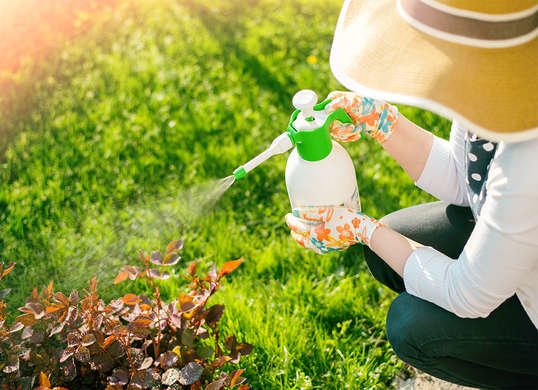Please Note: We have listed this article course on Backyard & Chemical Management as a flipbook on this page .It is for those interested in auditing the course/lesson. Please enroll in the course or get a Platinum membership and access all our courses at your leisure. This way you can report this course for Continuing Education (CE) or need a certificate. Enrolled students must take and pass the short quiz in order to earn CE credits. In addition, this course needs to be self-reported. Self-reporting information will be accessible once you complete the Quiz.
You probably aren’t considering the environmental impact of your outdoor structures. For instance its while enjoying a backyard barbeque, pool party, or just sitting and relaxing on the deck.
Managing your backyard
On average, homeowners use ten times more chemical fertilizers and pesticides per acre. It is more than what farmers use on farmland. If improperly applied, these chemicals can find their way into drinking water wells. This therefore can pollute nearby lakes and streams. Children are particularly vulnerable to pesticides. Therefore these are stored or used without proper safety precautions.
Most homeowners understand that plants and sprinkler systems directly impact the environment. However they have to overlook other elements. Likewise the materials used to construct decks, patios, pools and fencing .Similarly the chemicals that are commonly used in fertilizers, pesticides and exterior cleaners. The good news is that there are safer eco-friendly alternatives which can be just as effective.
Join us as we discuss the basic principals of backyard & chemical management.
What you will learn about Backyard & Chemical Management
- Learn about eco-friendly alternatives for patios and fencing
- Look at natural alternatives for common backyard chemicals
- Outline the health, safety and welfare aspects of chemical management for all professionals involved on a project.
- Understand the basic principals of backyard & chemical management
- Explore ways to make your pool more eco-friendly
Don’t forget to join the discussion here when you’re done!
Course Content







Responses